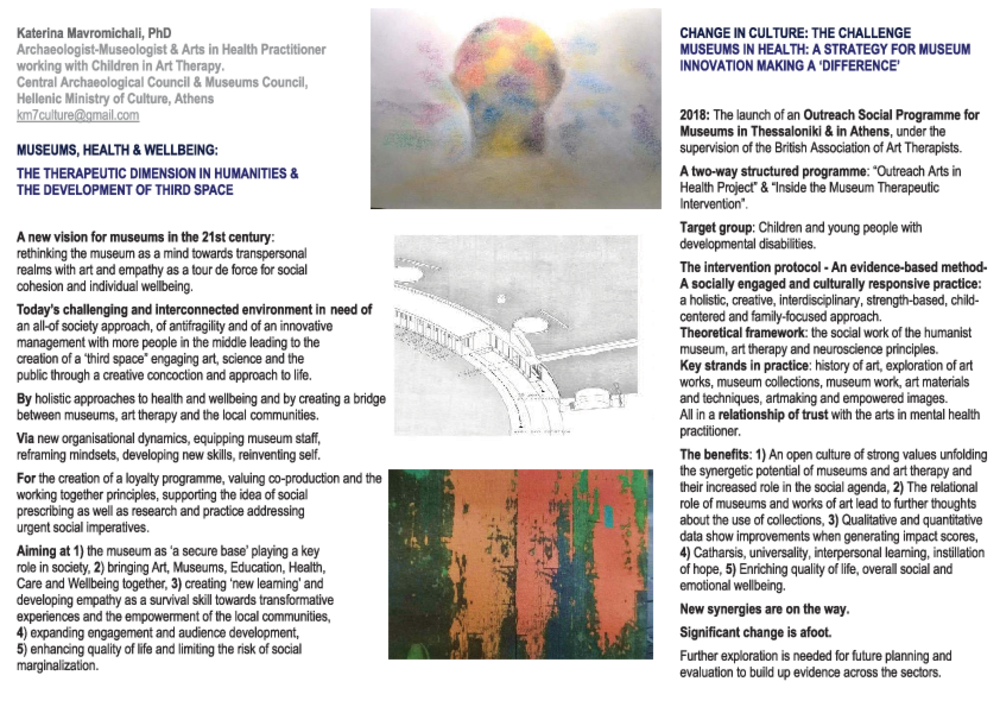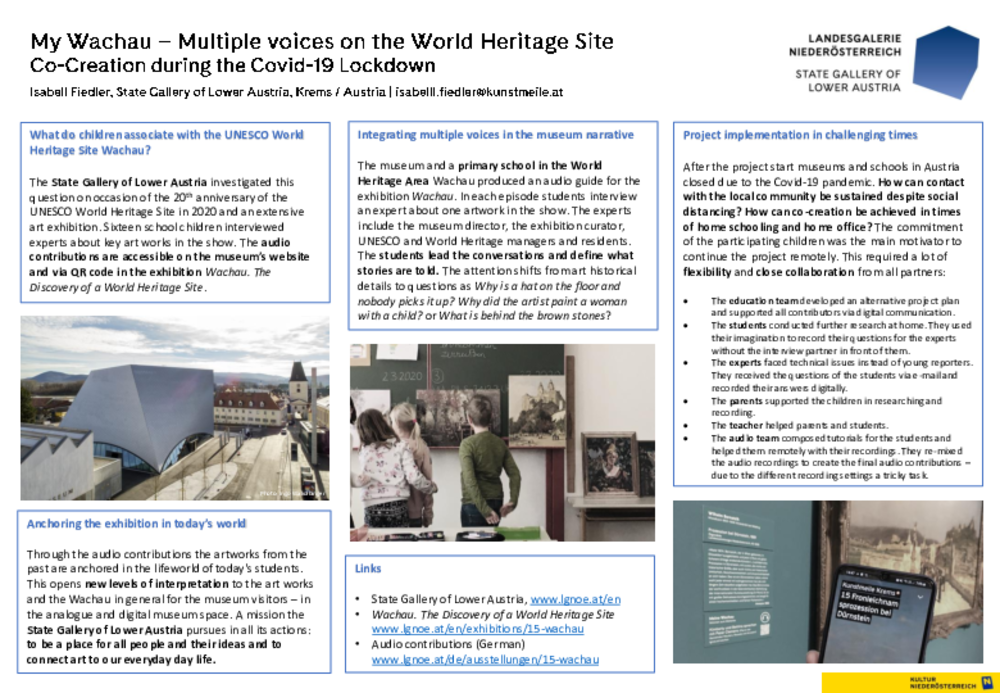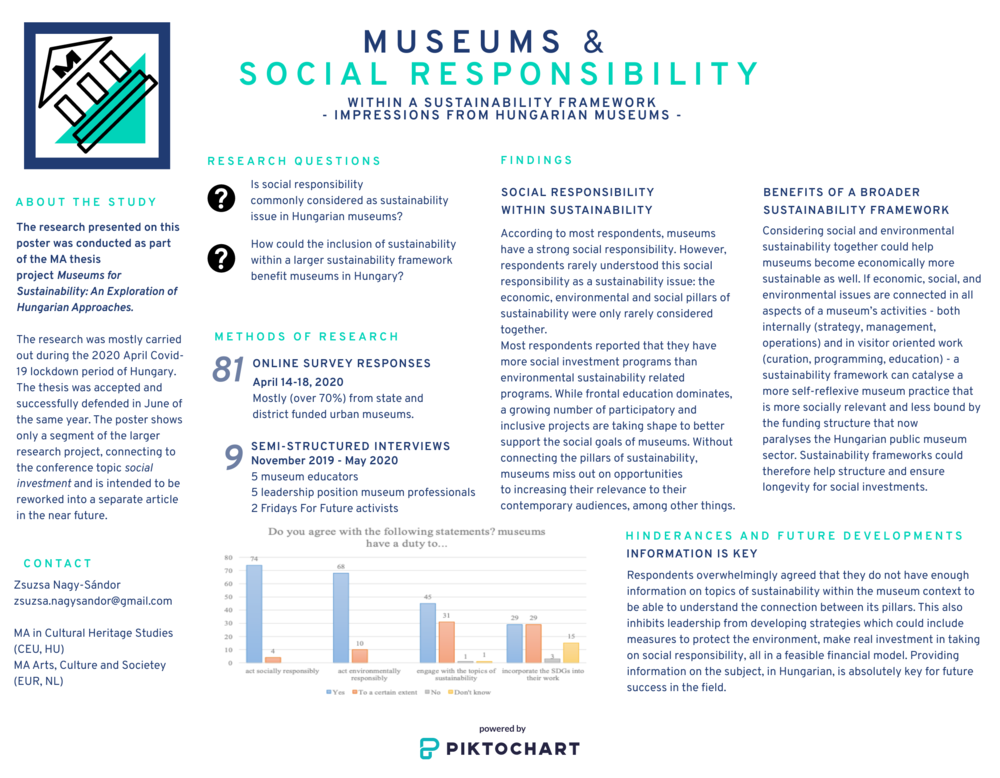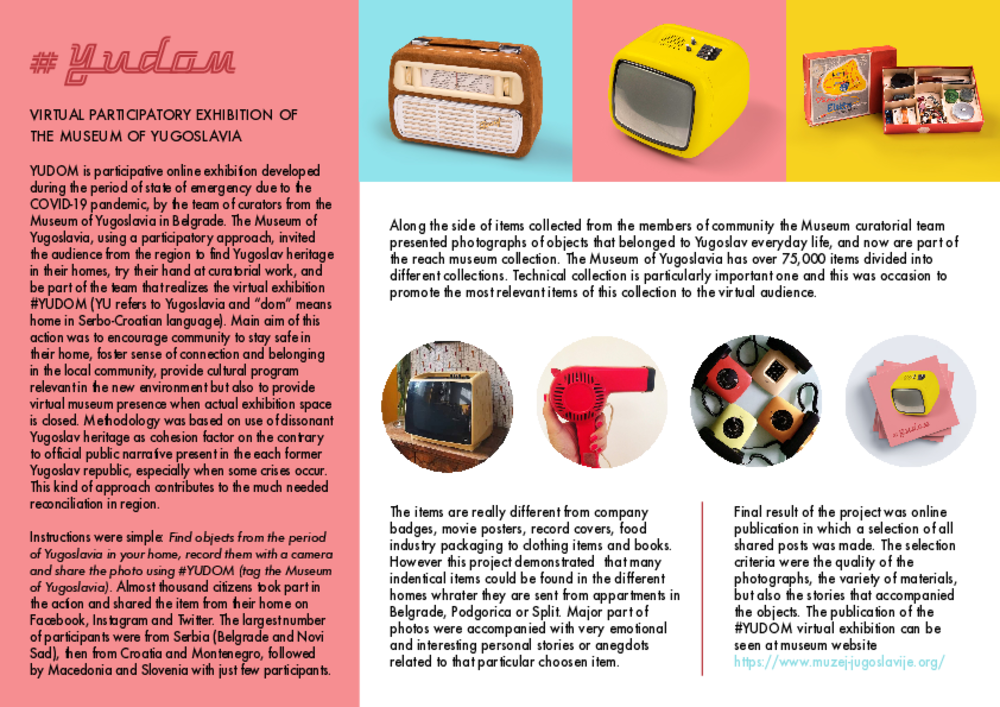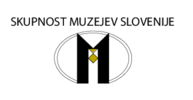Virtual poster session
We invited museums to present projects relevant to the conference topic in the Expo area, which acted as a virtual exhibitor hall. Scroll through the submissions below, watch the video and check out the posters. If you want to learn more about a project, simply email the project leader.
The restoration of Casa Batlló - from inside to beyond its walls
This video presents the results of the World Heritage Volunteers Project that aimed to contribute to the restoration of Casa Batlló, to engage with youth, development of skills for Heritage conservation. The educational activities included training for Heritage documentation, special walking tours and sustainable development lectures. The international volunteers collaborated also with local people in a workshop and their contribution supported the multidisciplinary task for the preservation of Casa Batlló, a site in Barcelona inscribed in the World Heritage List in 2005.
The mejes – historical farmhouses of Val Gardena – constitute a significant architectural heritage, dating back in some cases to the 13th century. The exhibition highlights the silent beauty of the mejes through the black and white images captured by the renowned architectural photographer Václav Šedý.
In this era of migration and displacement, this territory stands out as a meeting place for peoples, including refugees, such as those rescued from Aquarius welcomed by the Fundão Chamber. To promote an educational action focused on the demands of the community, we turn to education theorist Paulo Freire. Based on the method and his work, through popular listening and contact with the community of Donas, we will mobilize the collection of this institution to promote
heritage safeguarding, spreading knowledge and building an active and integrating citizenship diversity. With the support of the ‘Fundão Center for Migration’, ‘Crossing Memories’ project aims to build a virtual multimedia archive of the migration memories that have as origin or destination the municipality of Fundão. Ensuring the inclusion of local communities, particularly that of groups most vulnerable, immigrants and refugees, deconstructing prejudices.
Classics in the Graphic Novel: A pilot model of new high school culture education through graphic novels
Three European partners - Slovenian Theatre Institute (Slovenia), Zbigniew Raszewski Theatre Institute (Poland) and Theatre Institute (Slovakia), work on three canonical European dramas – a common European heritage. Three visual artists, graphic novel authors, in collaboration with high school students perform selected canonical dramas in three graphic novels. Each drama-graphic novel will be available in Slovenian, Polish and Slovak language. Together with artists, students and teachers a model of innovative
cross-sectoral and interdisciplinary culture and arts education in high school will be developed, based on drama-graphic novels produced. Theatre heritage of staging of selected dramas in partner countries will be presented in the e-exhibition. Project duration: November 2019 - June 2023. With the support of the Creative Europe Programme of the European Union.
Transformation towards food systems ready for the future is taking place all around Europe in 14 City Labs hosted by science centres and museums, higher education organisations and living labs within the framework of the H2020 project FIT4FOOD2030. Taking community needs as its starting point, City Labs developed hands-on trainings that raise awareness on the topic of food systems and encourage the development of competences that foster transformation. In the process, local Research & Innovation initiatives and stakeholders came together for learning, inspiration and connections.
Over the past 2 years, the EU-funded project SISCODE has been exploring the application of co-creation methodologies in policy design to bridge the gap between science, society and innovation. The project has two differentiated lines of research. On the one hand, through a pan-European wide study, co-creation ecosystems have been compared and contrasted to gain a better understanding of the dynamics within them and the outcomes they generate. On the other hand, 10 co-creation labs, are studying co-creation in real-life contexts. Together with their local communities, they have tackled 10 locally specific challenges to collaboratively prototype implementable solutions.
Over the past three years the H2020 project SySTEM 2020 has been assessing the practice and impact of science learning outside the classroom, providing solutions and tools to support equitable learning. One of these tools is the learning portfolios, which was designed for young learners to reflect on STEAM learning during science, art and maker workshops helping us to see how science learning relates to the rest of their life. For the learning portfolios we use zines. A step by step guide on what a zine is, how it can be useful and how it can be made with your learners can be found here.
EU-Citizen.Science is the digital platform for anyone interested in citizen science. Our mission is to become the central reference point for anyone setting up or running a citizen science project - such as practitioners, researchers, educators, communities and citizens, anyone supporting the ecosystem of citizen science projects - such as policy makers and funding bodies, and anyone interested in the outcomes and impact of citizen science - such as decision makers, the press, and society as a whole. This European project involves a variety of partners ranging from universities, NGOs, local authorities CSOs and Natural history museums, all working on a daily basis with citizen science.



